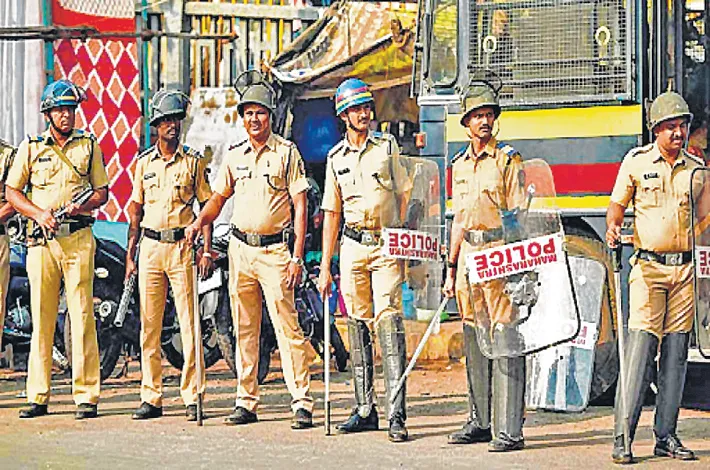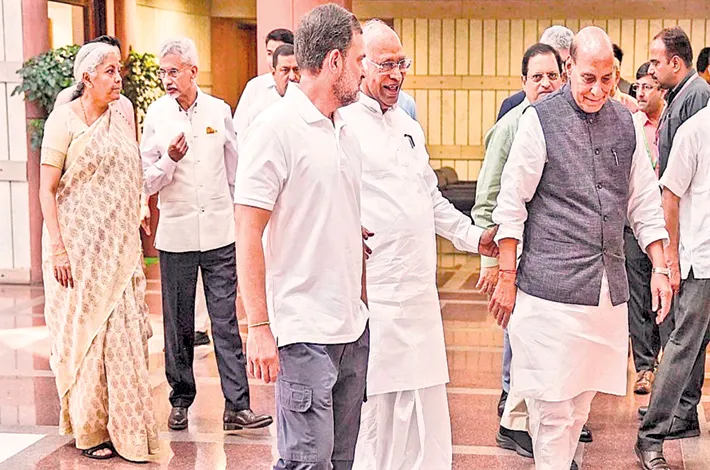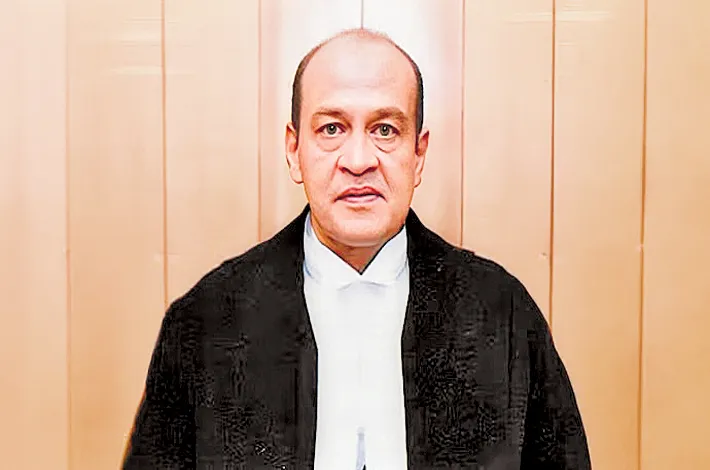Beed murder sparks Maharashtra political and credibility crisis
01-01-2025 12:00:00 AM

Beed murder exposes governance lapses, lawlessness and challenges government integrity and stability
Legendary Marathi playwright Vijay Tendulkar wrote the script for the blockbuster film Samana nearly 50 years ago. The pathbreaking movie depicted a district satrap dominating the cooperative sector, morphing into a dictator, and ultimately ruining his career after murdering a former Army jawan who challenged him.
Fiction seems to have turned into reality in Maharashtra, as a strikingly similar political drama unfolds in the state’s Marathwada region, specifically in Beed district.
For 21 days, the state has been gripped by political turmoil surrounding the brutal murder of BJP village chief (sarpanch) Santosh Deshmukh. The three accused in the case, allegedly political activists, remain absconding, turning this into one of Maharashtra's most contentious issues.
During the recent state assembly session, BJP veteran and five-term MLA from Beed, Suresh Dhas, raised the issue of Deshmukh’s murder, which occurred in mid-December. He suggested the accused were evading arrest due to their political connections, indirectly linking them to Maharashtra Minister Dhananjay Munde.
While the Nationalist Congress Party (NCP) and its leader, Deputy Chief Minister Ajit Pawar, have maintained conspicuous silence, the outrage culminated in an all-party march in Beed on December 28, drawing tens of thousands of protestors demanding justice for Deshmukh.
A month ago, the BJP-led
Mahayuti alliance seemed firmly in control of the state assembly with an unprecedented majority, poised to implement ambitious projects. Now, the Beed incident dominates headlines both regionally and nationally, forcing the government to defend itself against accusations of a collapsing law and order situation.
Beed’s political legacy is significant, having produced stalwarts like Pramod Mahajan and
Gopinath Munde, two of the BJP’s top leaders. Historically, the district has witnessed intense rivalry between the BJP and Sharad Pawar’s NCP. In recent years, this rivalry has morphed into a broader contest between Maratha and OBC leaders, exacerbated by Manoj
Jarange Patil’s Maratha agitation. The district has become a hotbed of caste polarization, with recent elections witnessing a dramatic surge in voter turnout.
The political and caste tensions in Beed have escalated following Deshmukh’s murder. As a member of the Maratha community, his killing has further fueled the agitation among Maratha activists, deepening divisions between communities.
A broader concern now is the politicization of law enforcement in Beed. Viral videos showing young political activists, often supporters of local leaders, brandishing handguns and firing shots into the air have sparked outrage. Many now question whether Beed has become Maharashtra’s “Wild West.”
Restoring faith in the police and ensuring unbiased investigations are urgent challenges for Chief Minister Devendra Fadnavis, who must demand professionalism from the state’s law enforcement machinery.
The issue’s origins underscore a deeper malaise. Reports indicate that political activists demanded substantial cash donations from the management of a non-conventional energy company. While some payments were allegedly made, the escalating demands led to altercations, culminating in Deshmukh’s murder.
This scandal casts a shadow over Maharashtra’s reputation as India’s leading destination for foreign direct investment (FDI), which accounted for 52% of the country’s total FDI inflows last year. If political extortion and instability deter investors, the state risks losing its competitive edge.








